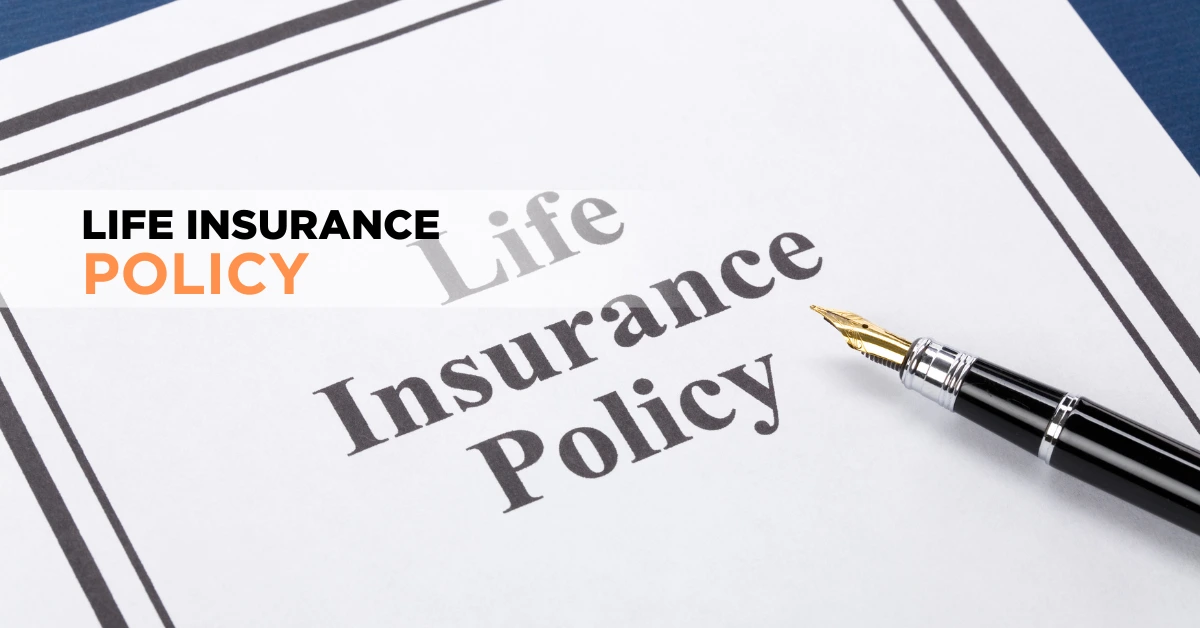Life is full of uncertainties, and planning for the future is a responsibility. Getting life insurance policy is a crucial step in securing your family’s financial stability. It is the best protection that you can give to your loved ones.
We will dive into what an insurance policy is and how life insurance policy plans work to provide peace of mind and financial security.
What is a Life Insurance Policy?
A life insurance policy is a contractual agreement between you and an insurance company. It offers financial protection to your beneficiaries in case of your death. Simply it is a way to ensure that your loved ones are well taken care of even when you are no longer around.
How does it work?
When you buy a life insurance, you pay regular premiums to the insurance company. In return, the insurance company promises to provide your chosen beneficiaries with a lump-sum payment. It is known as the death benefit that they get after your passing away. This financial cushion can help your family cover funeral costs, mortgage payments, or education expenses.
What are the three main types of life insurance?
Certainly! There are three primary life insurance policy types. The life insurance policy details are discussed below:
1) Term Life Insurance Policy:
This type offers coverage for a specified period, known as the “term.” This can be 10, 20, 30 years, or any other predetermined period. The policy pays out a death benefit if the insured person passes away during the term. Term life insurance is chosen for its affordability and simplicity.
2) Whole Life Insurance Policy:
This insurance type offers lifelong coverage. It provides a death benefit to beneficiaries whenever the insured person passes away, regardless of age, as long as the premiums are paid.
In addition to the death benefit, these insurance policies have a cash value component. A portion of the premium payments goes into a savings account that grows with time. You can withdraw from this cash value or borrow against it. This life insurance type tends to have higher premiums than term life insurance.
3) Universal Life Insurance Policy:
Universal insurance is another type of permanent life insurance policy. It offers flexibility regarding premium payments and death benefits. Policyholders can adjust the timings and number of premium payments within certain limits. Like whole life insurance, universal life insurance also builds cash value. It can be used to cover premiums or withdrawn, which are subject to certain conditions.
Tips to consider before buying best life insurance policy
Getting the best life insurance policy involves carefully considering your needs and thorough research. Here are some tips to help you find the right life insurance policy plans for you:
Assess Your Needs:
Determine why you need life insurance. Consider factors like your family’s financial obligations, outstanding debts, future goals, and the number of dependents you have. This will help you decide how much coverage you need and for how long.
Understand Policy Types:
Familiarize yourself with the different life insurance policy types (term, whole, universal) and their features. Choose the type that aligns with your needs and budget. A term policy might be best if you need coverage for a specific period, while a permanent policy like whole or universal insurance might suit lifelong needs.
Research Companies:
Research and compare different insurance companies. Look for reputable insurers with strong financial ratings and positive customer reviews. A reliable company will ensure that your beneficiaries receive the promised benefits.
Get Multiple Quotes:
Obtain quotes from several insurance companies. This will give you an idea of the cost of the coverage you need. Compare not only the premiums but also the coverage features.
Review Policy Details:
You might be looking for the life insurance policy for parents or the entire family. Thoroughly review the policy details, including the terms, conditions, exclusions, and any limitations. Make sure you understand how the policy works and what is covered.
Check Conversion Options:
If you are considering term life insurance, check if the policy has a conversion option. This offers conversion of your term policy into a permanent policy. It does not require undergoing a medical exam if your circumstances change.
Consider Premiums:
Choose a premium payment plan that suits your budget. Remember that while term life insurance generally has lower initial premiums, permanent policies might have higher ones. However, you can build cash value over time.
Review Your Policy Regularly:
Life changes, and so do your insurance needs. Review your policy periodically to ensure it still aligns with your current situation. You might need to adjust your coverage as your family grows, your financial situation changes, or you reach specific milestones.
Be Honest:
When applying for insurance, provide accurate and honest information about your health, lifestyle, and medical history. Misrepresenting information could lead to denied claims in the future.
Ask Questions:
Do not hesitate to ask queries if you need clarification on any policy aspect. Clarify any doubts before committing to a policy. The best life insurance policy providers will always guide you in the best way.
Getting the best insurance policy involves careful consideration, research, and seeking expert advice if needed. Take your time to evaluate your options. Choose the best policy that provides the coverage and peace of mind you and your loved ones deserve.
Frequently Asked Questions about Life Insurance Policy
The cash value is a component of a permanent life insurance policy. It is a savings account within the policy that grows over time. A portion of the premium payments goes into the cash value. It can be borrowed or withdrawn for various financial needs.
Several factors influence premiums. It includes the policyholder’s age, health, coverage amount, policy type, and sometimes lifestyle habits. Younger and healthier individuals generally pay lower premiums.
Yes, you can often make changes to your policy. For instance, some term policies can be converted to permanent policies without a medical exam. In addition, some policies allow you to adjust coverage amounts or premium payments within certain limits.
Term life insurance is ideal when you have specific financial burdens that will diminish over time. For example, if you have young children or a mortgage. A term policy can provide coverage during those critical years.
Yes! You can have more than one life insurance policy at the same time. It can be from different companies or the same company. However, ensuring that the combined coverage aligns with your financial goals and needs is essential.
If you stop paying premiums, the coverage will lapse, and the policy will no longer be in effect. Some policies offer a grace period. During that time, you can make late payments without losing coverage.
Choosing the right policy depends on your financial goals, needs, and budget. Consider factors like your financial obligations, long-term plans, and whether you prioritize temporary coverage or lifelong protection.
Conclusion
In conclusion, a life insurance policy is more than just a financial instrument. It is an authentication to protecting the ones you cherish. Securing a life insurance policy provides your family a safety net. It ensures that their financial stability during challenging times.
Investing in life insurance means an investment in your family’s well-being. Moreover, it demonstrates your enduring care for their future security. As you navigate the details of policy types, coverage options, and premiums, remember that your choice today can make all the difference in the tomorrow of your loved ones.

